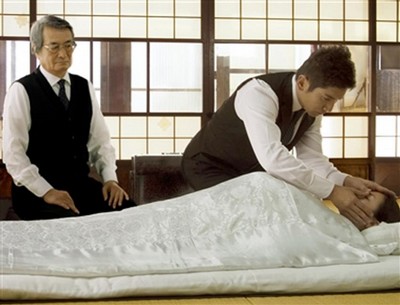Here goes:
1. The best birthday gift
This is way hard to choose, actually, because I had so many amazing birthday presents last year! Ashley Jones gave me a skirt that I love and the best key cover ever. I got a beautiful sweater and some great books from my sisters. And Josiah, in his usual custom, gave a hand-made greeting card, complete with personalized coupons to be redeemed for special outings and fun activities. In the end, I guess I have to say that Josiah's present would be the best, because there's no greater gift than time.
2. The best (and by "best," I mean worst) near-death experience
I'm not exaggerating. I really could have died. Back in September, when Josiah, Jared, and I took a two-night backpacking trip in the Ansel Adams Wilderness, the weather was less than kind to us. The first morning, it started to drizzle. With hopes of climbing nearby Madera Peak, we eyed the sky hopefully all day, casting furtive glances at the southern horizon, where dark clouds persistently loomed over the mountain tops.
Finally, at mid afternoon, the clouds in the south still showing no immediate intention to move our direction, we decided to just go for it. Armed with water and snacks, we began to scale the steep, granite slope. Once we cleared the tree line, the going became especially difficult, with loose rock shards slipping out from under us as we climbed higher and higher, our gaze remaining cautiously on the clouds in the south, ready to detect the slightest hint of threat.
A clap of thunder sounded so loud and so close you could feel it in the ground. Immediately, we realized our folly: we had been watching the clouds in the south so intently, we had entirely failed to notice the storm advancing on us rapidly from the north! We were absolutely exposed and standing on the side of one of the tallest mountain peaks in the vicinity, nothing but loose granite beneath our feet.
Fully aware that a scraped knee or even a twisted ankle would be preferable to being struck by lightning, we began to descend as quickly as possible, running and sometimes sliding down hillsides of sharp stones. As incautiously as we hurried, however, we were no match for the rolling black clouds, which advanced on us rapidly, releasing terrifying cracks of lightning. I moved as fast as I could, but both Jared and Josiah were far ahead of me. The clouds were finally right overhead. And then I was passing trees and shrubs and, as the rain began to fall, my hiking boots touched soft dirt, and I knew I was probably going to live.
3. The best thing I got in the mail
A letter from a student in Japan.
4. The best job
I genuinely loved working for UPS in December. I never thought it would be possible to love a job and occasionally, specifically on the days that it rained, it could be a little bit miserable. But I loved the feeling of working hard and doing something physically exerting while being outdoors and interacting with lots of different people in a positive setting all day. What was there not to love?
5. The best thing I crocheted
In late 2010 and early 2011, I crocheted several fun little things of which I was quite proud, but my favorite would have to be this guy right here.
He's an iPod sleeve.
















